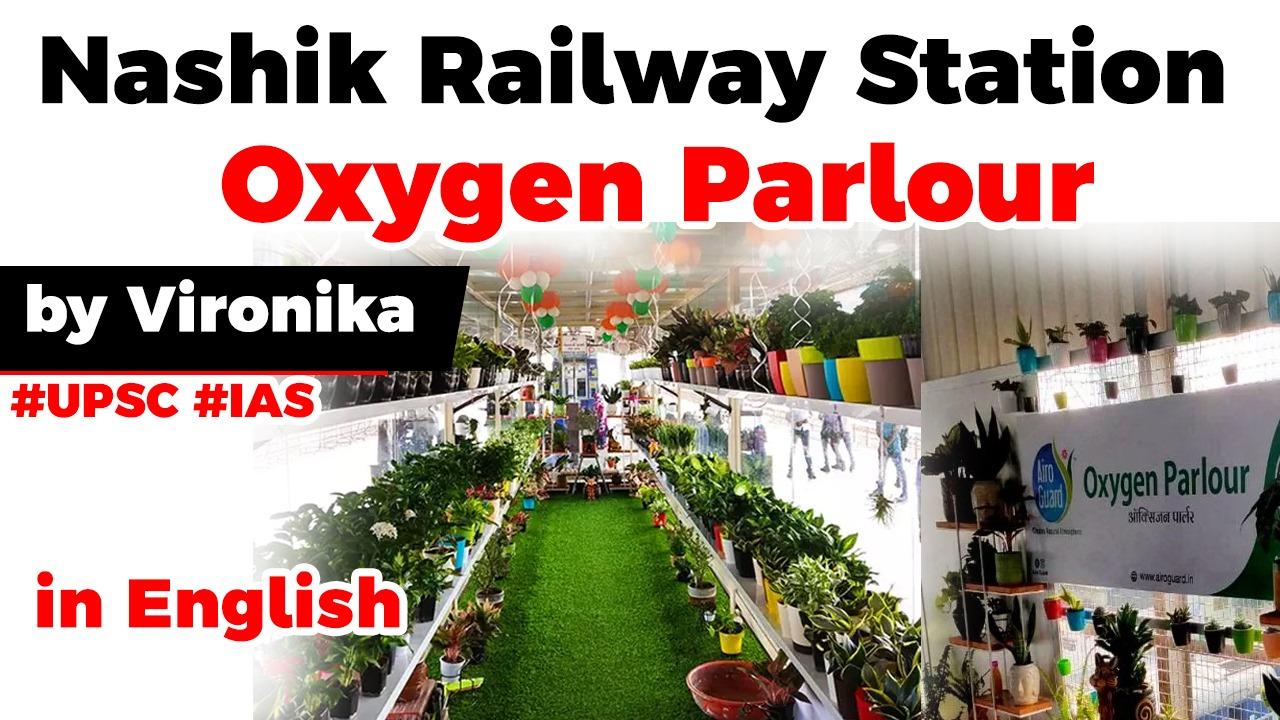Table of Contents
Context
- In a unique initiative to battle rising air pollution in cities, an ‘Oxygen Parlour’ has been opened at Nashik railway station to provide an experience of breathing clean air to the commuters. The initiative comes with the efforts of Airo Guard in collaboration with the Indian Railways.

- The co-founder of Airo Guard, Amit Amritkar said that the concept of Oxygen Parlour is based on the recommendation of the National Aeronautics and Space Administration (NASA). “In 1989, NASA had conducted a study in which they identified some plants that better absorb the five most harmful pollutants from the air. We have planted most of those plants here,”
- The NASA study titled ‘Interior landscape plants for indoor air pollution abatement’ suggests that the leaves, roots, soil, and associated microorganisms of plants have been evaluated as a possible means to reduce indoor air pollutants.
Fighting Air Pollution
- The Environment Pollution (Prevention and Control) Authority- EPCA declared a public health emergency in New Delhi as pollution levels entered the ‘severe plus’ category.
- Air pollution is now the third-highest cause of death among all health risks, ranking just above smoking, in India.
- An environment think tank Centre for Science and Environment in its report “At the crossroad” has said that Life expectancy in India has gone down by 2.6 years due to deadly diseases caused by air pollution.

Reasons
- Stubble Burning
- Vehicular Emission
- Topography
- Construction Sector
- Fire Crackers
- Dust Storm from Gulf countries
- Making Health a priority in Combating Air Pollution: In India, legislations have never considered health as a priority area in policy planning while framing regulations for combating Air Pollution.
- Toothless Watchdog: Under the act, the Pollution Control Boards are presently unable to fulfil their mandate as watchdogs against polluters.
- Pollution Liability: India’s pollution liability regime has never prioritised the adverse impact of pollution on health. In its present form, India’s Air Act does not mention or prioritise the importance of reducing the health impact of rising pollution
Way Forward
- Appropriate political will and aware citizenry is a prerequisite to tackle the menace, otherwise, all the measures will remain on paper only.
- Greater public transparency is essential to the success of winning the war on air pollution
Latest Burning Issues | Free PDF






















 WhatsApp
WhatsApp